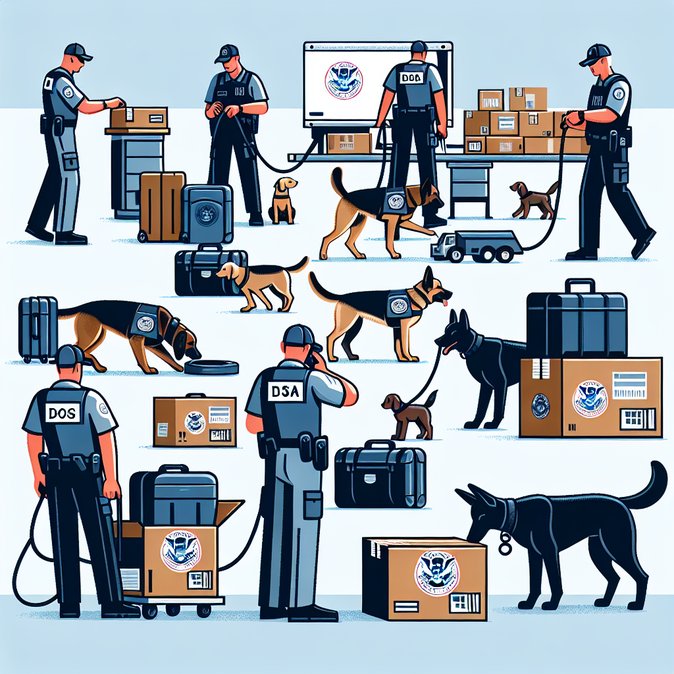
In a bid to strengthen border security and stem the flow of lethal synthetic opioids, the UK Border Force has rolled out specially trained canine units capable of sniffing out fentanyl and nitazenes. Announced on 24 October by Policing Minister Sarah Jones, the ‘K9 Synthetic Opioid Detection Units’ will operate across major ports, airports, and parcel hubs after pilot trials showed a high detection rate in both freight and mail streams.
The initiative—developed with support from Five Eyes partners—coincides with a surge in global trafficking of high-potency substances that can be 50–500 times stronger than heroin. More than 750 UK deaths have already been linked to synthetic opioids since mid-2023. By integrating dogs with the UK-designed Synthetic Opioid Pills Catalogue, officers can identify disguised pills within seconds, significantly reducing inspection times for legitimate cargo.
For business travellers and relocation shippers, the programme means additional but targeted inspections rather than blanket delays. Supply-chain managers importing personal effects or high-value equipment should ensure accurate manifests and be prepared for random K9 sweeps, particularly for courier deliveries.
The deployment underscores a broader policy trend: leveraging advanced detection technology and international data sharing to balance facilitation of trade with public health safeguards. Mobility practitioners should brief relocating employees on stricter parcel screening and potential hold-ups for incorrectly labelled prescription medicines.
Looking ahead, Border Force plans continuous training updates to keep pace with new opioid analogues, signalling an enduring shift toward risk-based, technology-backed border controls.
The initiative—developed with support from Five Eyes partners—coincides with a surge in global trafficking of high-potency substances that can be 50–500 times stronger than heroin. More than 750 UK deaths have already been linked to synthetic opioids since mid-2023. By integrating dogs with the UK-designed Synthetic Opioid Pills Catalogue, officers can identify disguised pills within seconds, significantly reducing inspection times for legitimate cargo.
For business travellers and relocation shippers, the programme means additional but targeted inspections rather than blanket delays. Supply-chain managers importing personal effects or high-value equipment should ensure accurate manifests and be prepared for random K9 sweeps, particularly for courier deliveries.
The deployment underscores a broader policy trend: leveraging advanced detection technology and international data sharing to balance facilitation of trade with public health safeguards. Mobility practitioners should brief relocating employees on stricter parcel screening and potential hold-ups for incorrectly labelled prescription medicines.
Looking ahead, Border Force plans continuous training updates to keep pace with new opioid analogues, signalling an enduring shift toward risk-based, technology-backed border controls.










